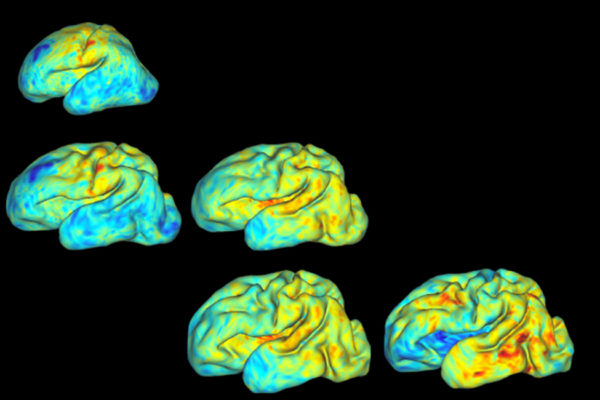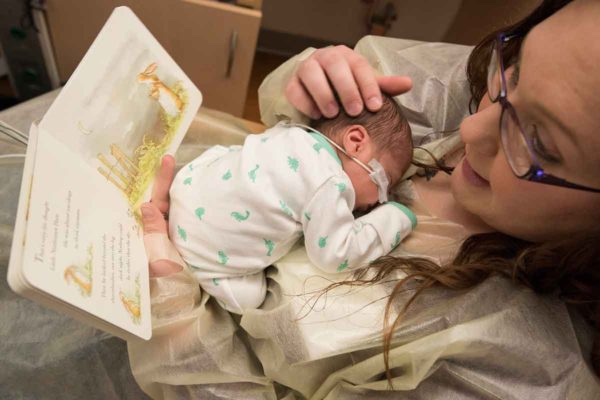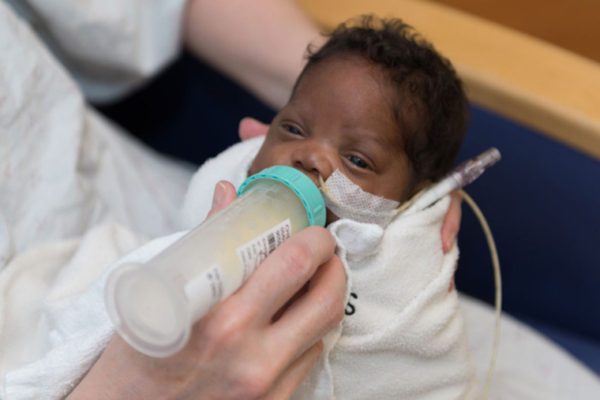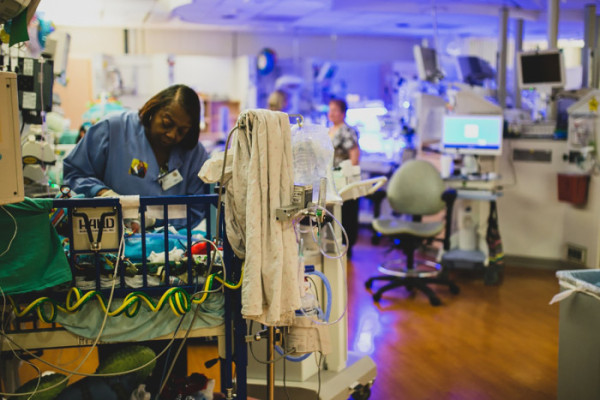3-D mapping babies’ brains
Research from a collaborative team at Washington University in St. Louis tested a 3-D method that could lead to new diagnostic tools that will precisely measure the third-trimester growth and folding patterns of a baby’s brain. Their findings might help to sound an early alarm on developmental disorders in preemies that could affect them later in life.
NICU study highlights importance of sound
Premature babies often spend the first several weeks of life in neonatal intensive care units (NICUs), where, ideally, they are protected from too much noise stimulation. However, researchers at the School of Medicine have found that preemies may be exposed to noise levels higher than those deemed safe by the American Academy of Pediatrics.
Breast milk linked to significant early brain growth in preemies
Feeding premature babies mostly breast milk during the first month of life appears to spur more robust brain growth, compared with babies given little or no breast milk, finds researchers from Washington University School of Medicine in St. Louis.
Preemies’ gut bacteria reveal vast scope of antibiotic resistance
A new Washington University School of Medicine study reveals extensive antibiotic resistance in the gut bacteria of premature infants. The researchers say these findings support the push to minimize routine use of antibiotics in these patients.
Study documents preemies’ development in NICU, suggests early interventions
Studying premature babies prior to their release from the NICU, researchers at Washington University School of Medicine in St. Louis have identified developmental differences between those preemies and babies born at full term. Their work points to opportunities for therapeutic interventions — even in the first few weeks of life — that might improve long-term outcomes for the preemies.
Preterm infants exposed to stressors in NICU display reduced brain size
New research by Washington University School of Medicine researchers, including Terrie E. Inder, MD, shows that exposure to stressors in the neonatal intensive care unit (NICU) is associated with alterations in the brain structure and function of very preterm infants.
Looking after the babies
A strong work ethic and the importance of family has fueled Terrie E. Inder’s passion for determining the impact of premature birth on brain injury and development in the Neonatal Intensive Care Unit at St. Louis Children’s Hospital.
Knitting for a cause
A knitting club comprising about 30 School of Medicine faculty and staff meets weekly to knit hats for premature babies at St. Louis Children’s Hospital and for cancer patients at Barnes-Jewish Hospital.
Preventing neonatal respiratory distress syndrome
WUSM researchers have developed new risk estimates for premature babies.If a woman goes into labor before her baby is full term, her obstetrician must make a crucial recommendation: delay labor or allow it to continue. Delivering the baby prematurely may increase the risk of neonatal respiratory distress syndrome (RDS), a potentially fatal condition. Now medical researchers at Washington University in St. Louis have generated new risk estimates for RDS that allow physicians to make delivery decisions with far greater confidence.
Preventing neonatal respiratory distress syndrome
WUSM researchers have developed new risk estimates for premature babies.If a woman goes into labor before her baby is full term, her obstetrician must make a crucial recommendation: delay labor or allow it to continue. Delivering the baby prematurely may increase the risk of neonatal respiratory distress syndrome (RDS), a potentially fatal condition. Now medical researchers at Washington University in St. Louis have generated new risk estimates for RDS that allow physicians to make delivery decisions with far greater confidence.




